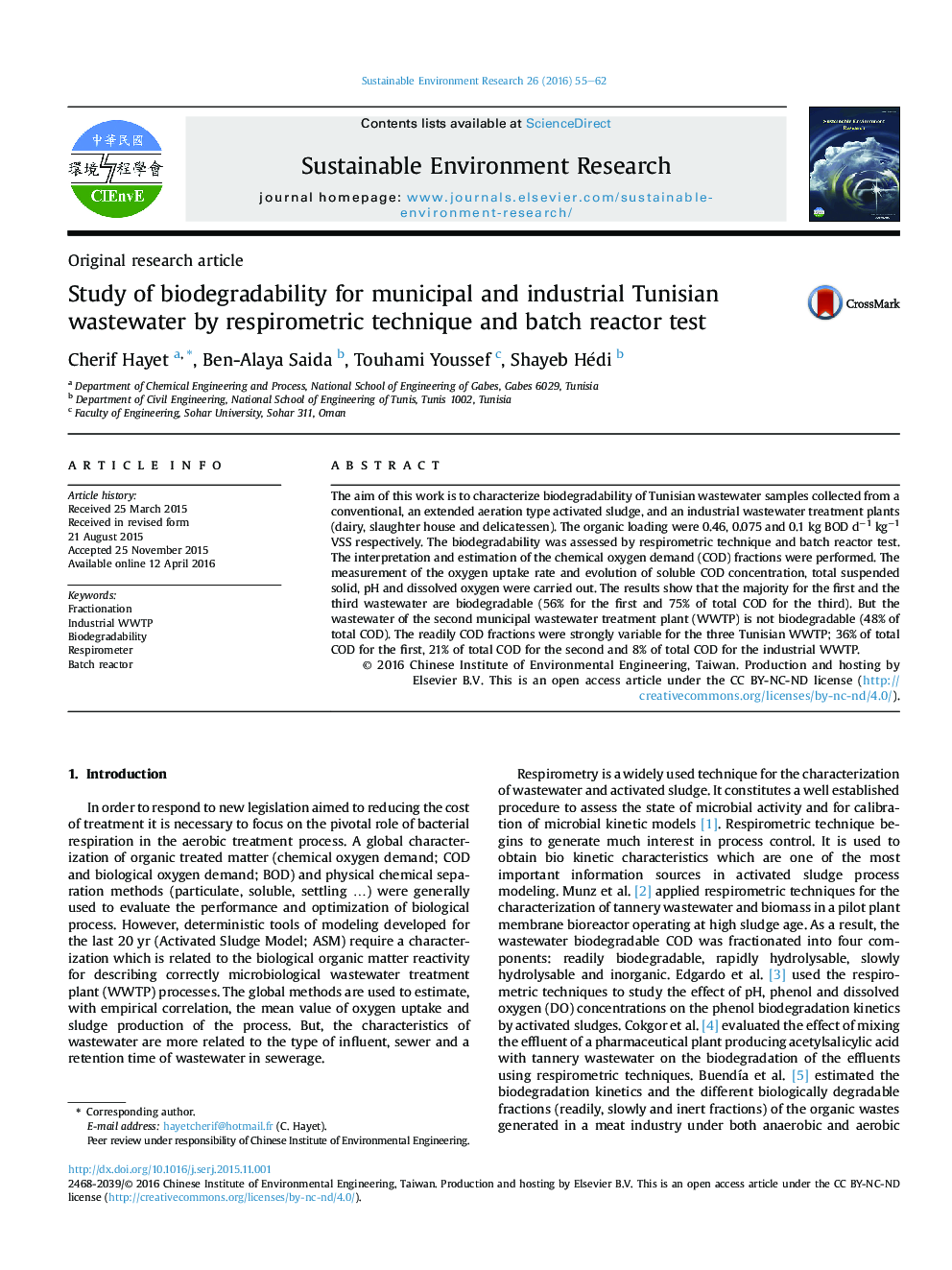| Article ID | Journal | Published Year | Pages | File Type |
|---|---|---|---|---|
| 4435390 | Sustainable Environment Research | 2016 | 8 Pages |
The aim of this work is to characterize biodegradability of Tunisian wastewater samples collected from a conventional, an extended aeration type activated sludge, and an industrial wastewater treatment plants (dairy, slaughter house and delicatessen). The organic loading were 0.46, 0.075 and 0.1 kg BOD d−1 kg−1 VSS respectively. The biodegradability was assessed by respirometric technique and batch reactor test. The interpretation and estimation of the chemical oxygen demand (COD) fractions were performed. The measurement of the oxygen uptake rate and evolution of soluble COD concentration, total suspended solid, pH and dissolved oxygen were carried out. The results show that the majority for the first and the third wastewater are biodegradable (56% for the first and 75% of total COD for the third). But the wastewater of the second municipal wastewater treatment plant (WWTP) is not biodegradable (48% of total COD). The readily COD fractions were strongly variable for the three Tunisian WWTP; 36% of total COD for the first, 21% of total COD for the second and 8% of total COD for the industrial WWTP.
